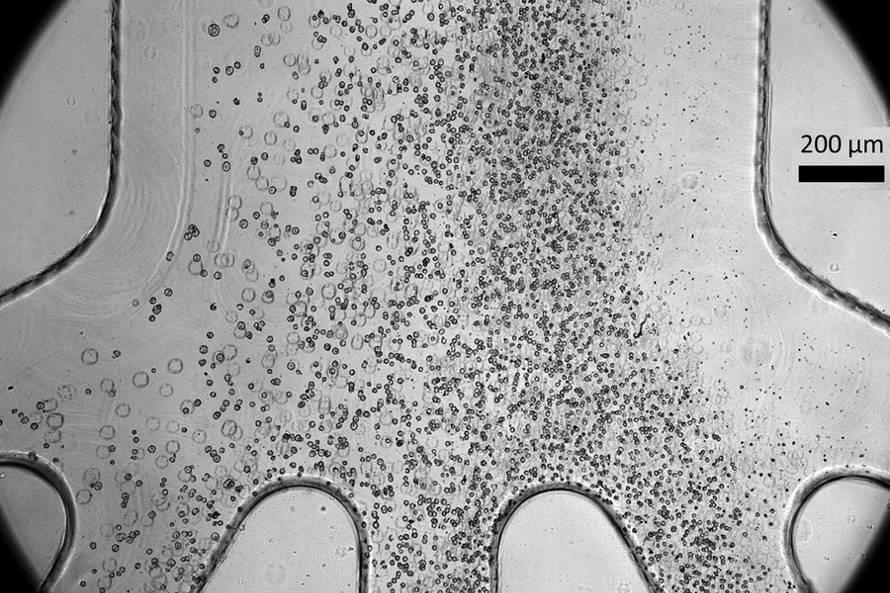A small device created by scientists at MIT and the Singapore-MIT Alliance for Research and Technology could improve the safety and effectiveness of cell therapy treatments for patients with spinal cord injuries.
In cell therapy, doctors create what are called induced pluripotent stem cells by reprogramming skin or blood cells from a patient. These stem cells are then encouraged to become progenitor cells, which can develop into spinal cord cells. These new cells can help regenerate part of the damaged spinal cord. However, if some of the stem cells don’t fully transform into progenitor cells, they can form tumors.
Researchers developed a microfluidic cell sorter that can remove about half of these undifferentiated cells—those that might become tumors—from a batch, without harming the fully developed progenitor cells.
The device can sort more than 3 million cells per minute without needing special chemicals. By connecting multiple devices together, they can sort more than 500 million cells per minute, making it a viable option to improve the safety of cell therapy treatments.
Even though cell therapy has the potential to treat spinal cord injuries effectively, the presence of undifferentiated stem cells poses a significant risk of cancer.
The microfluidic sorter works by separating cells based on their size. Pluripotent stem cells are larger than the progenitor cells they become. The sorter channels cells through a spiral-shaped pathway, where forces push them to specific locations in the fluid stream based on their size. This allows the sorter to separate the larger stem cells from the smaller progenitor cells.
By running the sorter twice at different speeds, researchers found they could remove about 50 percent of the larger cells in one pass.
The researchers are now conducting larger studies and animal trials to confirm if the purified cells work better in living organisms. Removing more undifferentiated cells could improve the effectiveness and safety of cell therapies.
This device has the potential to make cell therapy treatments safer and more accessible, benefiting millions of patients worldwide.
#MedicalResearch #CellTherapy #SpinalCordInjuries #Innovation #MIT #Research #Healthcare


